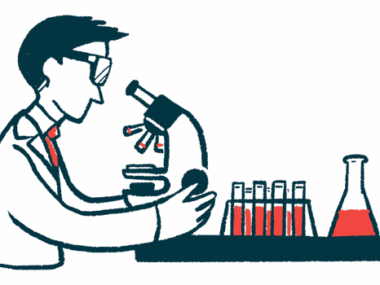Daily Probiotic Reduces Abdominal Fat and Insulin Resistance in Children with PWS, Study Finds
Written by |

Daily consumption of a common probiotic significantly lowered the percentage of abdominal fat, improved insulin resistance, and reduced social withdrawal in patients with Prader-Willi syndrome, a study has found.
The research, “Effects of Bifidobacterium animalis subsp. lactis on children with Prader-Willi syndrome: A randomized, double-blind, placebo-controlled, crossover trial,” was published in the journal Hormone Research in Paediatrics and presented at the European Society of Pediatric Endocrinology 2019 meeting, which took place in Vienna, Austria.
Disturbances in the gut microbiome (the microbial community in the gut) is increasingly being recognized as a major contributor to obesity and metabolic disease.
Bifidobacterium animalis spp. lactis (BAL) is a bacterial species that reside in the mammalian colon and is widely present in fermented milk samples. It is a probiotic — live microorganisms intended to have health benefits — which has shown promise in treating obesity, boosting immunity, and improving body composition and metabolic health.
One of its main targets is the metabolism of tryptophan, an amino acid (the building blocks of proteins) that plays a crucial role in the regulation of satiety and anxiety.
As people with PWS typically experience hyperphagia (excessive eating), anxiety, altered body composition, and impaired metabolism, researchers at Hospital Sant Joan de Deu, in Barcelona, evaluated whether daily supplementation with BAL could be beneficial for children with this disorder.
Their double-blind clinical study (NCT03548480) included 28 children (17 female, 11 male) with PWS, who were 4.5 to 18 years old.
Participants were randomly assigned to either BAL (1010 colony forming units, or cfu) or a placebo over three months. This was followed by a three-month washout period and then by another period of three months where children previously on BAL received a placebo, while those on placebo were treated with BAL.
Biochemical, psychological, biological (feces and blood), and body size/shape data were collected at the beginning and end of each phase. The main outcome measure was body composition, as assessed by percent adiposity (fat) with a DEXA scan, a common method to evaluate bone density.
Hyperphagia was assessed with the Hyperphagia Questionnaire for Clinical Trials (HQ-CT), designed specifically for PWS patients, while nutrition was analyzed using a four-day food record. Emotional and behavioral problems were evaluated with a parent-reported questionnaire.
Results showed that daily consumption of BAL significantly reduced the percentage of abdominal fat compared to a placebo.
Also, treatment with the probiotic increased fasting insulin levels (key to lower glucose) and eased insulin resistance.
Other outcome measures, including body mass index, blood pressure, and lipid profile, did not differ between groups. In addition, BAL supplementation had no effect on hyperphagia or caloric intake.
Although anxiety levels were unchanged, social withdrawal was reduced for those taking BAL in comparison to those on placebo.
“In summary, our data indicates that supplementation with BAL improves abdominal adiposity, insulin resistance, and could ameliorate some behavioral problems in children with PWS,” the researchers wrote.
“A follow-up study with a longer treatment period will be warranted to determine whether BAL supplementation could provide a strategy for improving long-term health outcomes in children with PWS,” they added.





